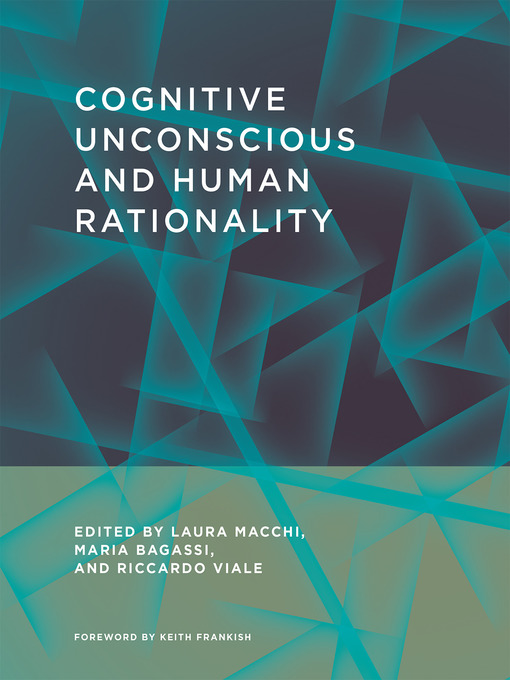This volume contributes to a current debate within the psychology of thought that has wide implications for our ideas about creativity, decision making, and economic behavior. The essays focus on the role of implicit, unconscious thinking in creativity and problem solving, the interaction of intuition and analytic thinking, and the relationship between communicative heuristics and thought. The analyses move beyond the conventional conception of mind informed by extra-psychological theoretical models toward a genuinely psychological conception of rationality—a rationality no longer limited to conscious, explicit thought, but able to exploit the intentional implicit level.
The contributors consider a new conception of human rationality that must cope with the uncertainty of the real world; the implications of abandoning the normative model of classic logic and adopting a probabilistic approach instead; the argumentative and linguistic aspects of reasoning; and the role of implicit thought in reasoning, creativity, and its neurological base.
Contributors
Maria Bagassi, Linden J. Ball, Jean Baratgin, Aron K. Barbey, Tilmann Betsch, Eric Billaut, Jean-François Bonnefon, Pierre Bonnier, Shira Elqayam, Keith Frankish, Gerd Gigerenzer, Ken Gilhooly, Denis Hilton, Anna Lang, Stefanie Lindow, Laura Macchi, Hugo Mercier, Giuseppe Mosconi, Ian R. Newman, Mike Oaksford, David Over, Guy Politzer, Johannes Ritter, Steven A. Sloman, Edward J. N. Stupple, Ron Sun, Nicole H. Therriault, Valerie A. Thompson, Emmanuel Trouche-Raymond, Riccardo Viale

